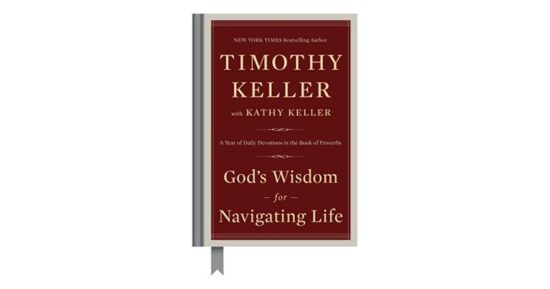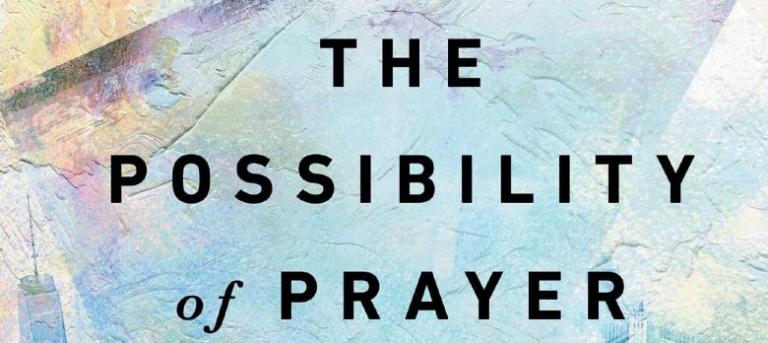
Christians often struggle to understand how to read Proverbs in light of the whole Bible and in light of the Gospel. Tim and Kathy Keller provide a real service to the church in their new devotional book God’s Wisdom for Navigating Life. This book contains a devotion from Proverbs for each day of the year and helps us grasp how to read individual proverbs in light of the whole book. (There are some devotions from Job and Ecclesiastes.) Also, they beautifully apply the Proverbs to our hearts through the lens of the Gospel.
Here were my favorite quotes from God’s Wisdom for Navigating Life:
“You can lack sophistication, as the world assesses it, and still be wise. And you can be sophisticated–well-off, well-connected, and educated–but still be simple.” (9)
“Trouble can take anything away from you except God. Therefore, if God is to you a greater safety, a deeper security, and a more powerful hope than anything else in the world, you fear no trouble.” (42)
“Without faith in God, even the most sophisticated and diligent thinker is going to leave out too much of reality to be genuinely wise about life. No one would trust a surgeon who had no medical training or a cook who could not tell salt from sugar. And why should we even trust our own thoughts and intuitions if they omit the one who created the fabric of the universe and holds it all together?” (53)
“Ironically, the more you look to the things of the world to give you your deepest pleasures and satisfactions, the more frustrating they will be. So a life devoted to pleasure actually does not deliver pleasure.” (66)
“The sin that is most distorting your life now is the one you can’t see.” (84)
“God’s wisdom refuses to reduce depression, for example, to any one cause. It does not have simply a chemical or simply a moral or simply a spiritual cause. All the dimensions of our nature are usually involved. It is foolish to reduce the solution to just ‘take a pill’ or to just ‘repent.’” (104)
“If we are assured in the gospel that we have the acclaim and delight of God through Christ, then we won’t be constantly hungry for praise, we won’t resent it when it is not there, and we won’t be puffed up by it when it comes.” (142)
“It is true that our beliefs shape our behavior, but behavior also influences our thinking and belief. Many believers testified that when they violated their conscience, God became less real to them. I have talked to college students from church backgrounds who started having sex because they lost their faith, but I met just as many who lost their faith because they started having sex.” (163)
“Don’t just say, ‘Well I told the truth.’ If you truly care about the truth, you will want people to believe it. Say it, then, in a way that makes it as hearable as possible. Words take craftsmanship. You need truthful words. You need kind and gentle words. And you need apt, appropriate, beautiful words.” (186)
“If you can approximate speech that maintains the balance of wise words–honest, non-deceptive, kind, gentle, apt, timely, unprejudiced, calm, forthright, and few–then you will be in a position to help any listener.” (192)
“If you can’t imagine a God infinitely wiser and more loving than you, then you won’t be able to trust him and grow in grace. The most basic wisdom is to trust the character of God, who has suffered and died in Jesus Christ for you and who will not withhold anything necessary for your ultimate joy.” (201)
“For the restoration of a relationship, we must let people know they wronged us (Luke 17:3-4). It is never loving to let someone continue in sin against you, nor can the relationship be mended without talking about it.” (216)
“Internet culture privileges mockers, whose insults and broadsides are click bait. It disadvantages the kind of civil, respectful, patient, and careful back-and-forth that brings a diverse society together.” (235)
“A wedding is not so much a claim of present love as a promise of future love.” (247)
“True sexual chemistry, then, grows from the whole relationship, rather than the relationship being based on sexual chemistry.” (248)
“The idolatry of beauty is ruining us individually and as a society.” (271)
“Child discipline also demands parental discipline. It is easy punish anger rather than in love. Rather than sitting on the couch, shouting unfulfilled threats with increasing irritability, parents must respond instantly to any disobedience while they are still calm, and see that consequences are imposed.” (276)
“The Bible’s view of wealth and economics does not fit neatly into either socialism or capitalism. Poverty cannot be reduced to either a simple lack of initiative or to unjust social structures. Hard work and private property are highly valued, yet property rights are not absolute, because we are only stewards of what God has entrusted to us.” (311)
“Family members know what it is like to be so closely identified with one another that an attack on a spouse, sibling, or child feels exactly like an attack on them. Here God says he’s so closely identified with the poor of the earth that whatever we do to them we are doing to him.” (343)
“Either you worship God or you will be worshipping something else–there is not the alternative of not worshipping.” (359)
(You can see more of my favorite quotes from other books here.)
Related Posts:
“The Best Quotes from The God Who is There“
















